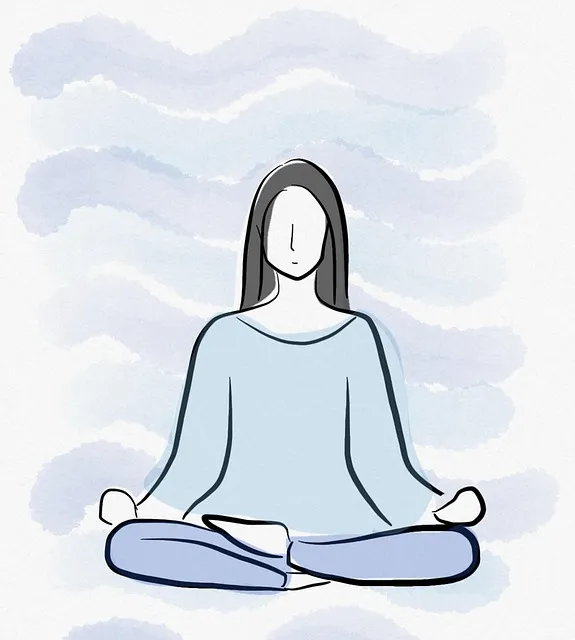Understanding your mental wellness needs is crucial for developing an effective self-care routine, as emphasized by experts like Parker Kaiser through their mental health classes. This involves reflecting on stressors, recognizing patterns, and tailoring strategies from work, relationships, or personal challenges. A comprehensive routine includes mindfulness, regular exercise, balanced nutrition, and journaling, combined with therapy sessions and support groups, to enhance resilience and long-term mental wellness. Parker Kaiser's innovative classes equip individuals with tools for emotional regulation, communication, and personal growth through a holistic approach, fostering community support in a safe environment.
Developing a robust mental wellness self-care routine is essential for navigating life’s challenges. This article guides you through creating a holistic approach to well-being, featuring strategies from leading experts like Parker Kaiser mental health classes. We’ll explore understanding your unique mental wellness needs, establishing foundational practices such as mindfulness, exercise, and nutrition, and integrating therapeutic techniques like journaling and support groups. By the end, you’ll be equipped with tools to cultivate resilience and foster personal growth.
- Understanding Your Mental Wellness Needs: Reflecting on Stressors and Triggers
- Building Blocks of a Self-Care Routine: Mindfulness, Exercise, and Nutrition
- Incorporating Therapeutic Practices: Journaling, Therapy, and Support Groups
- Parker Kaiser Mental Health Classes: Tools for Cultivating Resilience and Growth
Understanding Your Mental Wellness Needs: Reflecting on Stressors and Triggers

Understanding your mental wellness needs is a crucial step in developing an effective self-care routine. It involves taking time to reflect on the stressors and triggers that impact your emotional well-being, as identified by experts like Parker Kaiser in their mental health classes. This process allows you to recognize patterns and sources of stress, whether they stem from work demands, interpersonal relationships, or personal challenges. By acknowledging these factors, you can begin to tailor strategies for managing them, incorporating practices that foster resilience and emotional healing processes.
A comprehensive risk assessment, as discussed in the context of a Mental Health Professional’s practice, can help individuals identify potential triggers and develop coping mechanisms. Similarly, cultural sensitivity in mental healthcare practice plays a vital role in understanding diverse stressors. For instance, what might be a significant trigger for one person could differ greatly from another based on their cultural background and life experiences. Incorporating these insights into your self-care routine ensures it remains relevant, personalized, and supportive of your unique mental wellness needs.
Building Blocks of a Self-Care Routine: Mindfulness, Exercise, and Nutrition

A robust mental wellness self-care routine involves incorporating essential practices that support overall well-being. Among these foundational elements, mindfulness stands out as a powerful tool for navigating life’s challenges. Practicing mindfulness encourages individuals to focus on the present moment, cultivating awareness of thoughts and feelings without judgment. This conscious approach can significantly reduce stress and anxiety, promoting mental clarity and emotional resilience.
Complementing mindfulness, regular exercise and balanced nutrition are cornerstones of self-care. Physical activity releases endorphins, often referred to as “feel-good” hormones, which can enhance mood and alleviate symptoms of depression. Additionally, engaging in activities that promote movement can improve sleep quality, further benefitting mental health. Nutritious food choices fuel both the body and mind, ensuring optimal cognitive function and emotional stability. Incorporating these practices, supported by resources like Parker Kaiser mental health classes, effectively equips individuals with communication strategies and conflict resolution techniques to manage stress and find anxiety relief in their daily lives.
Incorporating Therapeutic Practices: Journaling, Therapy, and Support Groups

Incorporating therapeutic practices is a vital component of cultivating a robust mental wellness self-care routine. Journaling, for instance, serves as a powerful tool for introspection and emotional processing. By setting aside dedicated time each day to reflect on thoughts, feelings, and experiences, individuals can gain valuable insights into their mental state and identify patterns that may warrant further exploration. This practice promotes self-awareness, fosters positive thinking, and strengthens the connection between mind and matter—core principles taught in Parker Kaiser mental health classes.
Therapy and support groups further enrich one’s self-care journey. Engaging with a qualified therapist offers a safe space to process emotions, work through conflicts, and develop effective coping strategies. Support groups, on the other hand, provide peer-to-peer connection and shared experiences, reinforcing the understanding that everyone faces challenges. These collective efforts are essential in navigating life’s complexities and cultivating resilience, ultimately enhancing one’s ability to maintain mental wellness over time.
Parker Kaiser Mental Health Classes: Tools for Cultivating Resilience and Growth

Parker Kaiser offers a unique and comprehensive approach to mental wellness through their innovative mental health classes. These classes are designed to equip individuals with powerful tools for cultivating resilience and fostering personal growth. By attending these sessions, participants gain valuable insights into managing stress, anxiety, and other mental health challenges.
The curriculum encompasses various topics, including mindfulness practices, emotional regulation techniques, and effective communication strategies, often taught through engaging and interactive methods. Their Mental Health Education Programs Design focuses on building social skills, enhancing self-awareness, and promoting a positive mindset—all essential components of a holistic self-care routine. Moreover, the classes provide a safe space for individuals to learn from one another, fostering a sense of community and supporting each other’s mental health journeys. This supportive environment is crucial, especially when navigating difficult topics and learning new coping mechanisms, as highlighted in their Risk Assessment for Mental Health Professionals.
Developing a robust mental wellness self-care routine is a transformative journey. By understanding your unique needs, incorporating essential practices like mindfulness, exercise, and nutrition, and seeking additional support through journaling, therapy, or support groups, you can significantly enhance your mental resilience. The Parker Kaiser mental health classes offer valuable tools for cultivating growth and well-being, enabling individuals to navigate life’s challenges with greater equanimity. Remember that self-care is not just a luxury but a necessity for maintaining a healthy mind and fostering personal transformation.





